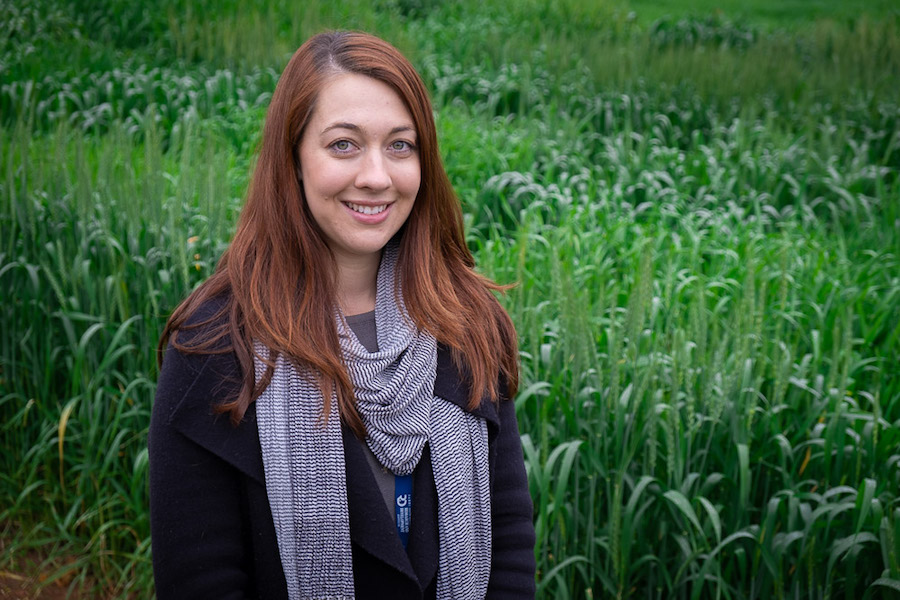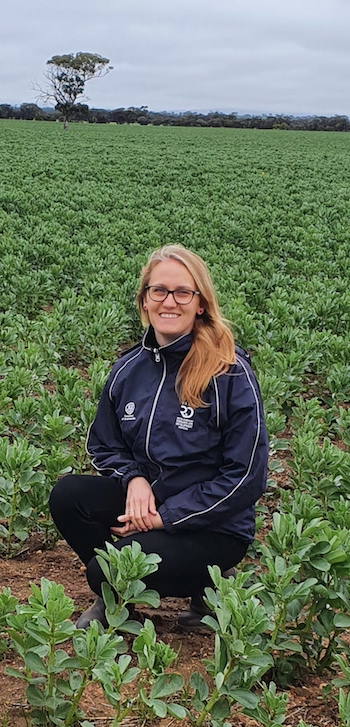A new generation of crop researchers at the South Australian Research and Development Institute (SARDI) is ensuring a positive outlook for the state’s grain growers.
The Institute’s multi-year commitment to mentoring is a key component in ensuring continuity and the provision of cutting-edge research and advice to benefit the sector, according to SARDI research director of crop sciences Dr Kathy Ophel-Keller.
The mentorship program has been one focus of the strategic research partnership between the GRDC and SARDI, which is the research division of Primary Industries and Regions SA (PIRSA).
Dr Ophel-Keller says mentoring ensures the extensive knowledge and experience of senior researchers can continue to benefit SARDI and, ultimately, growers.
“The partnership between SARDI and GRDC has meant we’ve been able to recruit some really outstanding people and have them working side-by-side with our experienced scientists,” she says.
“It’s been a real success story.”
Root diseases
Central to the mentoring project has been an ongoing study of soil-borne root diseases led by Dr Alan McKay.
Senior research officer Blake Gontar has been partnered with Dr McKay on this project for the past 12 months and believes mentorship transmits knowledge that would not be shared any other way.
“I had done field trials before this, but working with Alan provided a lot more exposure to lab-based biology and pathology, along with insights into molecular diagnostics,” Mr Gontar says.
“I learned a lot from his experience in setting up controlled environment experiments and his practical project management techniques.
“Having him share his knowledge with me keeps it available for future research and growers to benefit from.”

SARDI research scientist Dr Tara Garrard. Photo: PIRSA
Dr McKay also mentored research scientist Dr Tara Garrard through the soil-borne diseases project.
She says the benefits of learning from his experience were invaluable.
“As part of that project we started a root disease survey to identify soil-borne disease pressures,” Dr Garrard says.
“With Alan’s support, I was able to build this program so it now operates nationally.
“Through Dr Katherine Linsell’s program, we also established an interactive extension workshop which trains growers in soil-borne disease identification and management.
“These initiatives gave me an opportunity to pick up applied skills that definitely weren’t covered in my science degree, such as how to run field workshops and extend information to growers and advisers effectively.
“Alan provided a lot of detailed coaching for those.”
Cereal pathology
For the past two years, Dr Garrard has been working with Dr Hugh Wallwork on cereal pathology and foliar diseases, most recently with a focus on managing Net form of net blotch in barley.
She is now transitioning into leadership of the Cereal Pathology subprogram and says a key part of her responsibilities will be communicating advice to breeders and growers.
“SARDI has done a really good job of developing my skill set so I’m ready and capable to take on that role,” she says.
“So many of the skills required aren’t searchable or published.
“It all comes from the experience of speaking to growers and agronomists and there’s no way you could do a step-in transition.
“That’s why having two years working with Alan and two years working with Hugh has been so invaluable.”
Pulse pathology
Another researcher who has benefited from SARDI’s mentoring program is Sara Blake.
She has been mentored by Dr Jenny Davidson while monitoring legume resistance to Ascochyta blight in a program supported by Curtin University.
The project has made some significant findings in changes to cultivar resistance and communicating updated management advice to growers.
 SARDI research scientist Sara Blake. Photo: PIRSA
SARDI research scientist Sara Blake. Photo: PIRSA
Ms Blake says she always wanted to work in applied research and SARDI’s focus on delivering benefits to the grains industry means practical application and extension of the science is essential.
“Even though the research results are the same, the information has to be delivered in a certain way depending on who’s receiving it,” she says.
“Jenny has done a great job advising me on how to present the same message to different audiences so it translates into practice change.
“There’s nothing like standing up in front of 200 or 400 people at a field day to hone your public speaking skills.”
Ms Blake says she has also been given opportunities to increase her exposure to other areas of lentil research through the mentoring program.
“Jenny’s great at passing on knowledge and involvement in other areas of pulse disease research,” she says.
“I’m now also conducting National Variety Trials foliar disease screening for lentil and faba bean at the University of Adelaide’s Waite Campus.
"From July last year I’ve been providing pathology support to the University’s faba bean breeding program.
“It’s given me some great opportunities, which ultimately ensures we are delivering our research to growers in the best manner possible.”
Passing on knowledge
Dr Ophel-Keller says mentorship is an essential part of continuing to deliver knowledge and advice to South Australian growers. “We knew we needed to act early to maintain our capabilities in plant pathology and disease management into the future,” she says.
“Both SARDI and GRDC recognised the importance of continuing our services and the need to have outstanding research scientists delivering knowledge and expertise for growers.
“The kind of work we do isn’t offered by the private sector so it’s vital to the Australian grains industry and individual growers that we continue to fill that gap.”
Dr Ophel-Keller can also see the mentorship program encouraging more young scientists to consider agricultural research, creating a reserve of talent to support the grains industry.
“These appointments are a good signal to other young researchers and students who have their eye on a career in agricultural science,” she says.
“It shows this is a vibrant, important industry with an ongoing need for applied research and they can absolutely make a career in practical science in this field.”
The outcomes of this project are being delivered via the strategic research partnership between GRDC and SARDI in collaboration with the University of Adelaide.
The GRDC–SARDI partnership has facilitated a range of projects that provide innovative research outcomes relevant to SA’s cropping zones.
More information: pirsa.media@sa.gov.au

























































